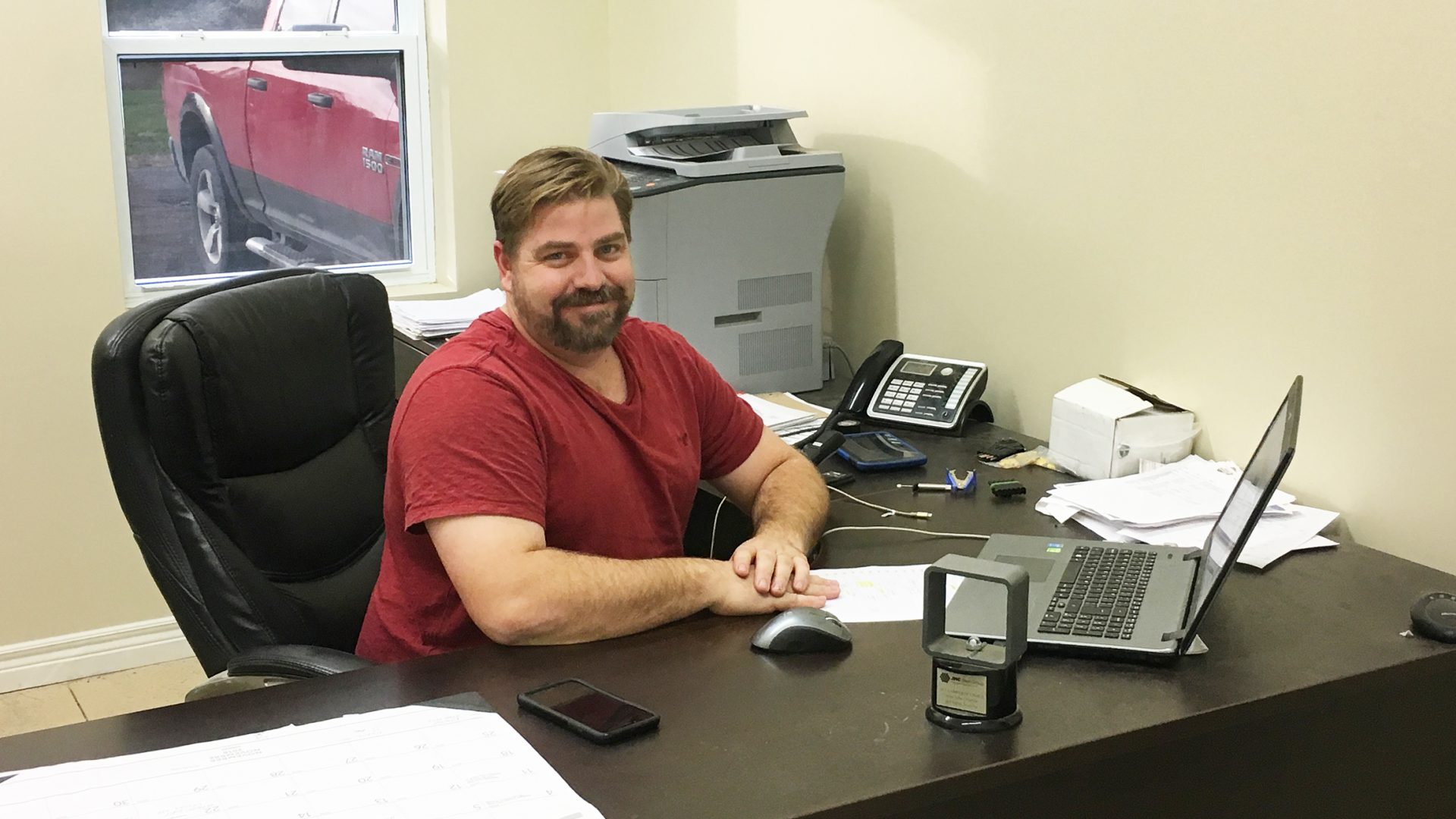Workforce WindsorEssex interviews different professionals for an inside look into their work.
To speak with an essential worker in the transportation sector, we met with Kevin who works as a dispatcher for Jeff Fields Trucking in Amherstburg. You can learn more about being a Truck Dispatcher through our detailed Career Profile.
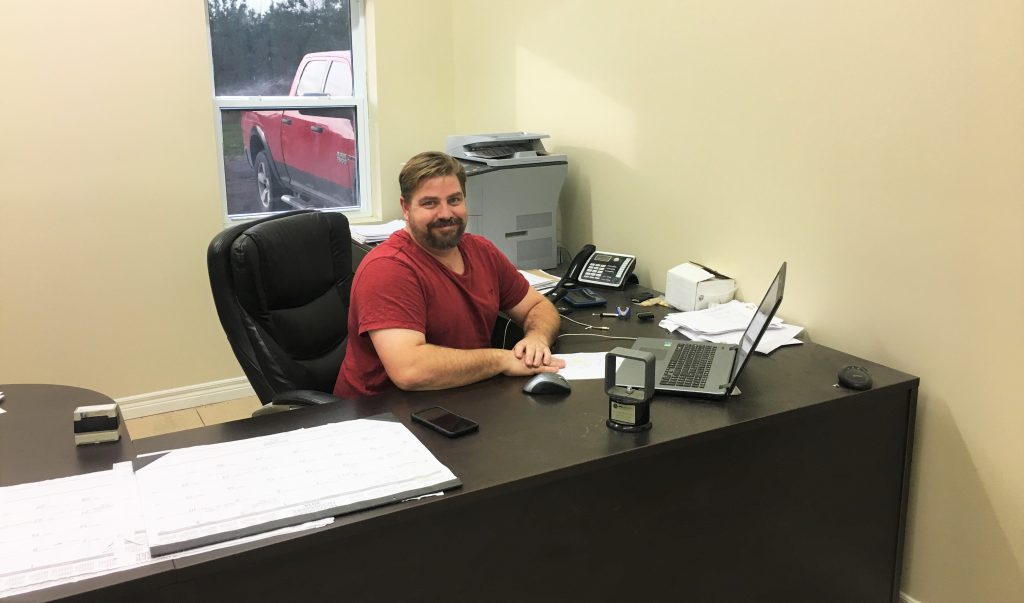
Can you tell us a bit about the company and what you do?
At Jeff Fields Trucking we have 15 trucks out on the road. Our company does mid to long haul trucking, the drivers do 2-3 day runs. Transporting steel tubing out of Atlas Tube is probably 80% of our business. We do a lot of work for mold shops in the area and we haul produce into the Baltimore area. We do all cross-border trips. We’re so close to the border, it’s much easier to transport internationally.
What is the typical day for a trucking company dispatcher?
My day starts with trying to figure out what went wrong overnight. Trucking never sleeps but I need to sometimes. So I start in the morning by trying to figure out who’s made it to where and what’s going on. After that, I make sure each driver has a return load, or an outbound load depending where they are. Then the rest of my day is trying to plan out the rest of the week and trying to make sure everything stays on track.
My title is also Operations Manager, so I also do some of the invoicing. I also to make sure all the maintenance is done on the trucks, and keep up with what needs to go into the shop at what time to ensure that they are good to go out.
All of our maintenance is done offsite.
My office hours are 8-5pm, but my phone is always on. Trucks don’t stop, so if somebody has a problem with their truck at midnight, somebody has got to deal with it, even if its 2am. Larger trucking companies have multiple dispatchers who switch off in shifts. We are a smaller company, with 15 trucks, so I do all three shifts. The truck drivers just know not to call me at night unless they really need to.
What happens if the trucks aren’t where they are supposed to be when you go back to work in the morning?
I have to figure out what went wrong. More along the lines of: Did customs hold them up? Did they sleep in? How was traffic? Were there any accidents that held them up? Basically I have to tell the customer where their product is and how long it will be until the truck is where it needs to be. Every morning the customer wants to know where it is, and it’s my job to update them.
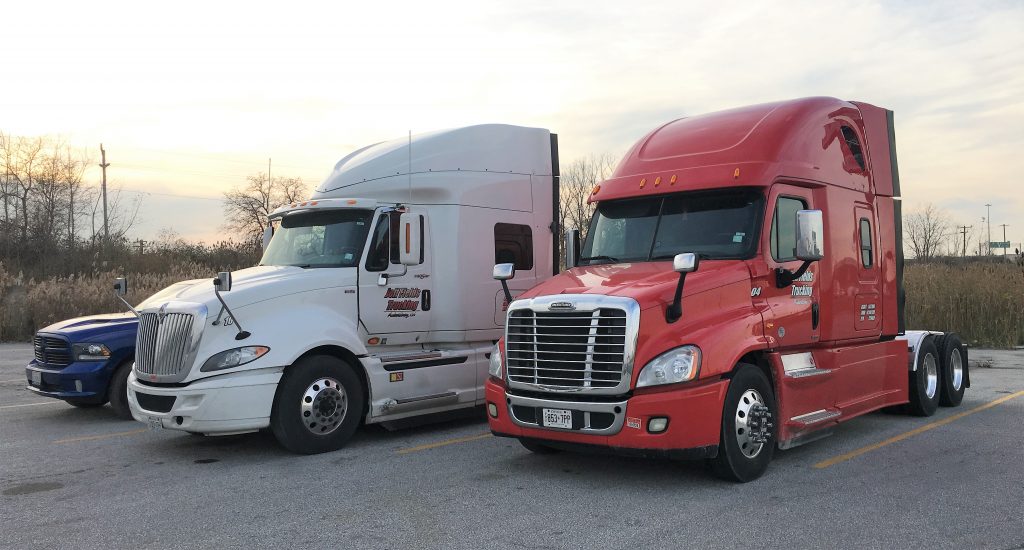
What led you to this job?
I was driving with this company at first, and then the company grew to a point where they needed some extra help in the office so the owners Kim and Jeff asked me if I wanted to come into the office and work.
This area has the highest number of trucking companies and there is definitely a demand for truck drivers out there. Where there are truck drivers, there are also dispatchers.
What sort of training was needed for your new role?
Having truck driving experience was a huge asset to the role. Being out on the road was all the training that I needed except for learning how to use computers a little better. Had to learn come new programs like ‘Load Link’ for finding return loads, we also use ‘Wireless Link’ for tracking where the trucks are. I had to learn how to write up invoices, and learn about excel spreadsheets.
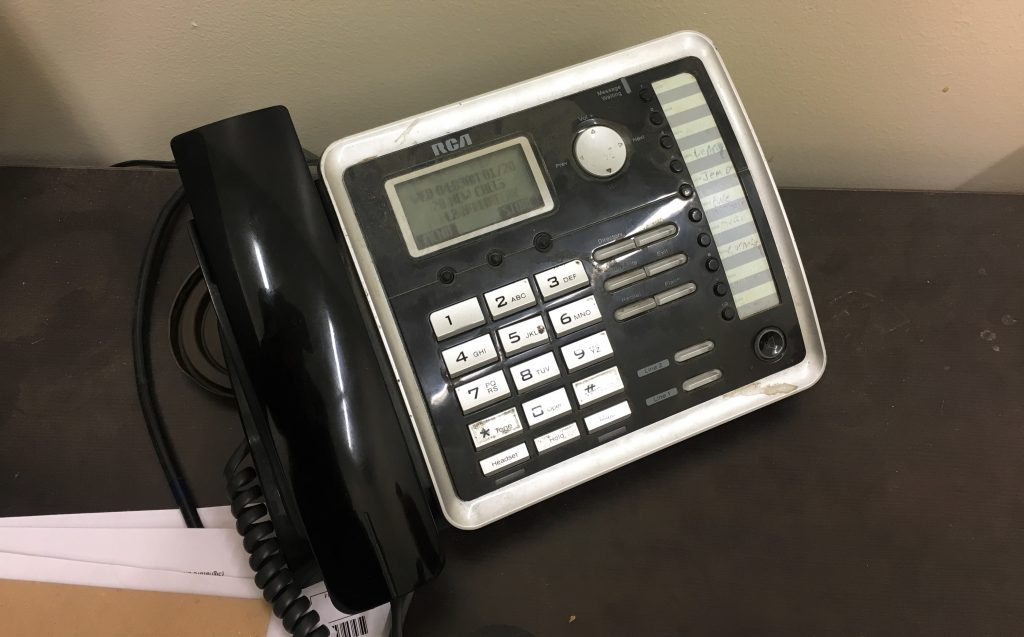
What would you say is the most enjoyable part of your job?
Trying to coordinate everything seamlessly. Dealing with the challenges of trying to figure out who can pick up what on time. The challenges of the everyday tasks. I like being challenged, it’s better than sitting around all day.
I like having people call me and say “Hey Kevin, can you have a truck here for …this time?” and if I’m able to work things around and make that happen, it feels great. I like to plan it all out.
I enjoy that my experience truck driving for so many years makes me good at this job, and makes it easier for me to dispatch. This is because I understand what they’re going through out there. I know some of the ‘ins and outs’ because I’ve been in their shoes.
You enjoy the challenges, but what would you say is a difficult challenge of the job?
That would be finding drivers. I am looking to hire two more drivers right now. We’re looking for people who have some experience, preferable flatbed experience. But, people can be trained. We need our drivers to be able to cross the border. We’re looking for reliable, easy going people, who are able to adapt. Trucking is all about adapting- just as you think it’s all been figured out, someone throws a curve ball and you have to adjust. For example- you’re headed to Pittsburgh with a load, but that order got cancelled, so you need to drive to Tennessee instead. It’s always something. The industry is always changing.
Why do you think you are having a hard time finding drivers?
Long haul truck driving is a different lifestyle. It’s an interesting life to be away from home all the time, but there are some definitely some good sights to see, and experiences to have, if you can. The whole industry is short on drivers, but there are a lot of great people in this industry. As long as you can deal with people, and be flexible, this job is a lot of fun, I really enjoyed being a truck driver.
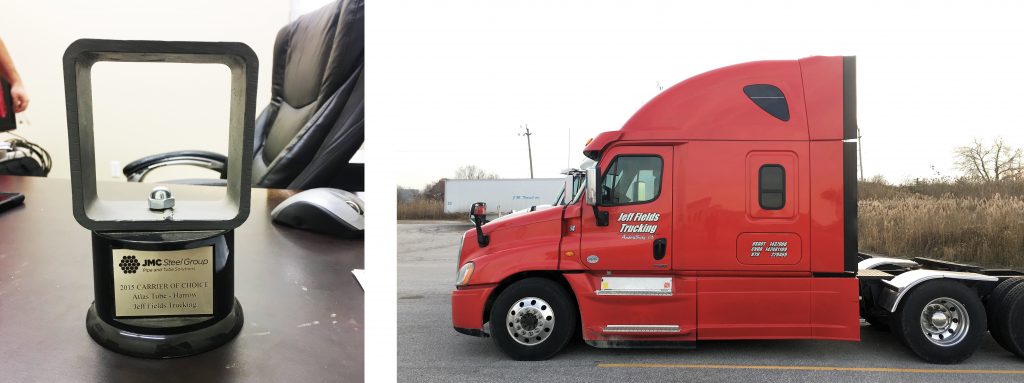
What would you say is interesting about being a dispatcher for a trucking company?
Following the ups and downs of the economy. Trucking is fairly recession-proof, but when the economy is down, different areas start to not get as much freight. So then we have to broaden where we are going. Freight never goes to the same place for long, unless you’re transporting automotive. Sometimes we have to drive farther or take different loads than we normally would. When the economy is booming, there is work coming into Windsor from all over, all the time.
What advice would you give to someone looking into becoming a dispatcher?
Learn the industry before you become a dispatcher because if you understand what is going on in the truck, dispatching is a lot easier.
Treat everyone you come across with the same respect you’d want to be treated with. If the truck is delayed, you’ve got to tell the customer that. If you’re lying to everybody, no one will trust you after that and you’ll lose business. Tell people the truth, they will respect you more, even if it isn’t what they want to hear.
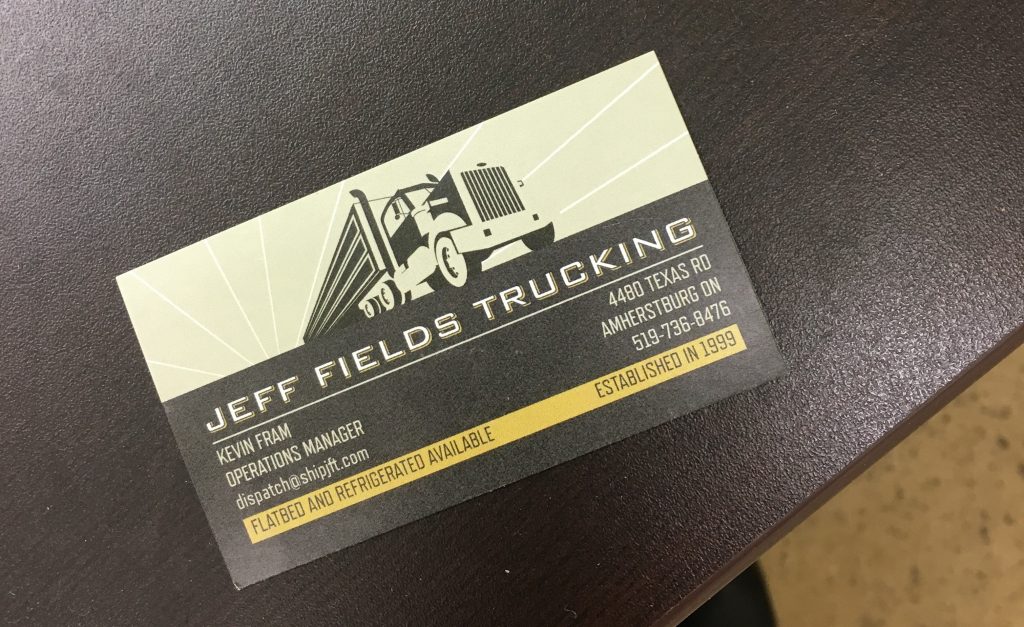
Questions or Comments? Please email sfram@workforcewindsoressex.com
Are you an Essential Worker? Would you be willing to share your experience with us? Please contact info@workforcewindsoressex.com, Subject: Essential Worker Portal.
